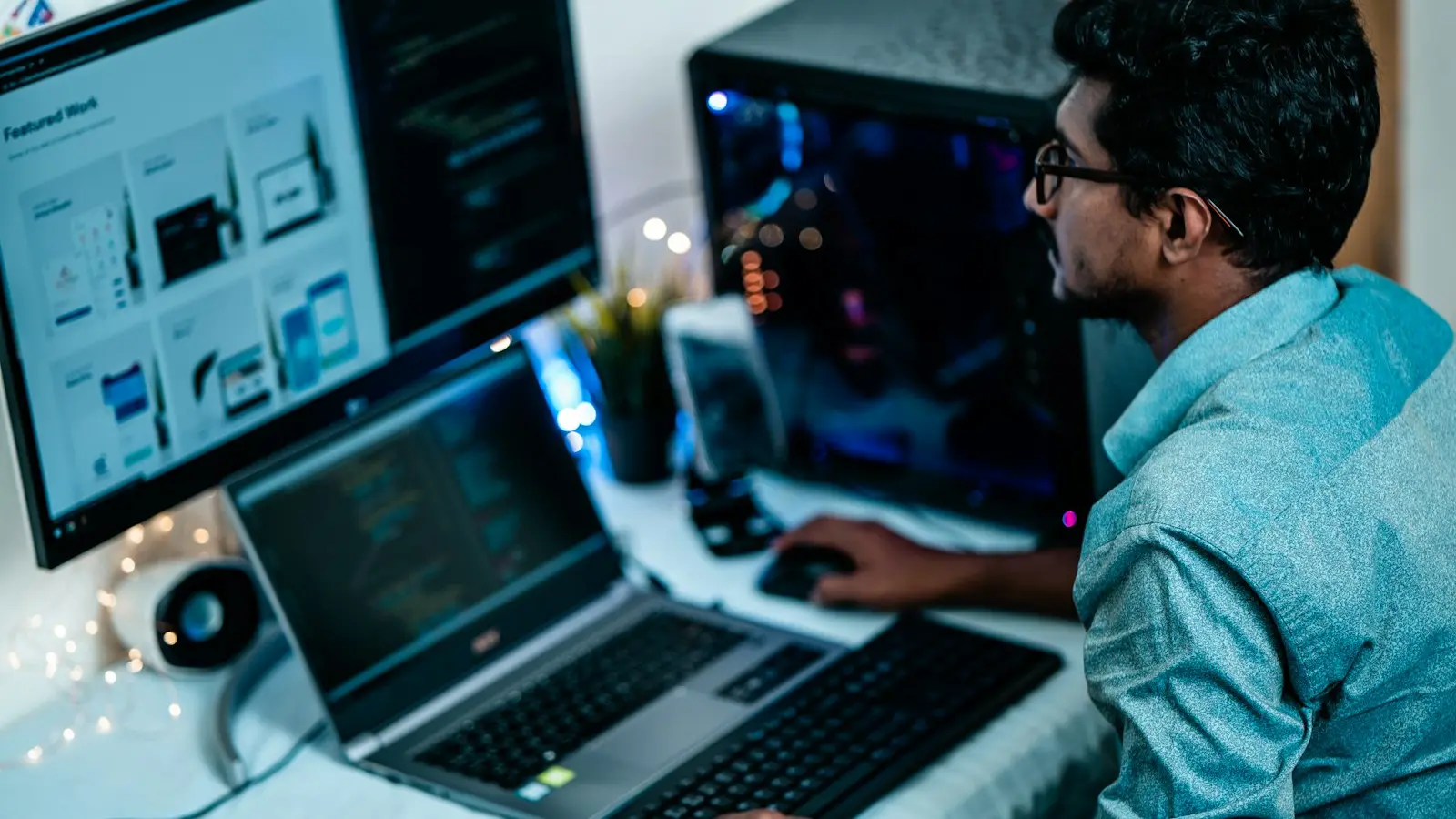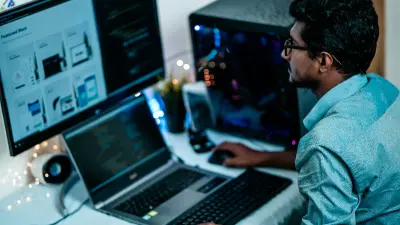Have you ever imagined working from a boarding room in Surabaya while managing projects for a company in America, or moderating content for a global platform from a small home in the Philippines? Amid the whirlwind of technological advancements, more people worldwide are entering the borderless digital workforce. Their stories are not just statistics on digital growth, but real narratives of hope, struggle, and new dilemmas. For some, this is a golden opportunity never before imagined. Yet on the other hand, there is the reality of inequality: uneven access to high-speed internet, often unequal income, and ambiguous global work regulations placing many workers in uncertainty. Today’s digital migrant workers’ stories are not merely about technology’s progress but also about how humanity and empathy are tested in a work environment without geographic or cultural boundaries.
Ika's Story: A Remote Worker from Yogyakarta
Ika, 32, a graduate in engineering from Yogyakarta, lives a daily life that might sound like a dream: she designs software for a startup in Berlin without ever leaving her small rented room. Behind the flexible hours and casual dress code, Ika faces continuous challenges—from working hours adjusted to European time zones to feelings of ‘isolation’ due to minimal face-to-face interaction with colleagues. She admits, "Sometimes I wake up and have to join a meeting right away, sometimes I finish debugging at 2 a.m. It’s exhausting, but when I think about it, this is an opportunity not everyone gets."
AI Freelancer Trainer in India: Sustaining Family Through Data
Moving to Ahmedabad, India, a man named Rajesh supports three generations of his family as an AI data trainer for an American company. Here, a new reality emerges: AI technology 'employs' people worldwide, but Rajesh's position is fragile. His pay depends on the volume of data processed; there's no guarantee when projects suddenly stop. Nevertheless, Rajesh feels proud, saying, "I have the opportunity to understand a world I never touched before." Technology gives him more than income—there is personal pride seeing his work help to 'teach' artificial intelligence.
Susi, Content Moderator from the Philippines: The Silent Guardians of Cyberspace
For Susi in Manila, being a content moderator for a major social network means facing a rarely discussed reality: reviewing thousands of posts daily—from humorous memes to violent images or videos. This job is far from the spotlight but is crucial in keeping digital spaces safe. "Sometimes, I find it hard to sleep," Susi admits. "Some images linger in my mind." Yet for her, this work saves her family from poverty, even though the emotional cost is significant. Ironically, technological progress has opened employment that demands extra psychological resilience but often offers insufficient compensation.
Technology: Both Empowering and Creating New Inequalities
It’s no secret that the digital workforce opens gates to a global realm, but it also creates gaps between those who are 'connected' and those left behind. Slow internet in rural Indonesia, high cross-border payment fees, and limited English proficiency are visible yet often overlooked obstacles. Another layer of vulnerability appears through varying work standards, often lacking protection under local labor laws. For digital migrant workers, daily life involves not just adapting to technology but balancing hopes and anxieties amid a rapidly changing world.
Cultural Diversity and Empathy in the Virtual World
Remote work means interacting with colleagues from different cultures. Ika once misunderstood a blunt German colleague, contrasting with Indonesia's more subtle communication style. Rajesh was surprised to encounter more relaxed deadlines with European clients, while local clients typically demand speed. Here, empathy and openness are key; every day they learn to understand and appreciate differences even before technology provides all the answers.
The Pandemic as a Catalyst for Transition—But Not Equally
The COVID-19 pandemic accelerated the shift to digital realms, forcing many companies to adopt remote work models. However, not everyone has equal access to these opportunities. Those with existing technology access and global networks are better prepared to compete, whereas workers in other regions may lack infrastructure or skills. This underscores: technology isn’t just a tool, but a determinant of new destinies.
Creating Balance: What Needs to Change?
Listening to these stories raises a profound question: who is responsible for ensuring that progress does not create new victims? Digital companies must be more transparent and fair regarding work standards and pay. Governments need to improve internet access and labor protections. Meanwhile, digital worker communities are building solidarity networks—sharing tips, psychological support, and negotiating wages to maintain balance. Within virtual spaces, communities arise that support each other beyond cultural and language barriers.
Looking Ahead: Technology and Humanity Must Move Together
Ika, Rajesh, and Susi represent just a fraction of digital migrant workers in the new era. Technology opens opportunities but demands the global community be wiser and more inclusive. Cross-border collaboration, cultural sensitivity, and the drive to uphold digital ethics are vital. The future of digital work depends not only on the speed of innovation but on our courage to embrace humanity in every decision we make.
Conclusion
Lorem ipsum dolor sit amet, consectetur adipiscing elit, sed do eiusmod tempor incididunt ut labore et dolore magna aliqua. Ut enim ad minim veniam, quis nostrud exercitation ullamco laboris nisi ut aliquip ex ea commodo consequat. Duis aute irure dolor in reprehenderit in voluptate velit esse cillum dolore eu fugiat nulla pariatur. Excepteur sint occaecat cupidatat non proident, sunt in culpa qui officia deserunt mollit anim id est laborum.
Closing
Thank you for joining us in exploring the stories of digital migrant workers today. May these narratives inspire space for reflection and new questions: what is our role—as individuals, communities, and members of a global society—in building a more humane digital work ecosystem? Let’s keep learning, empathizing, and paving the way for more positive stories from around the world.







